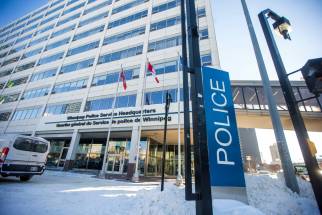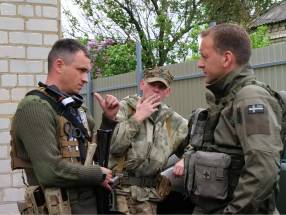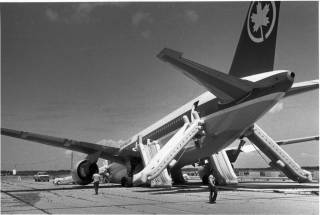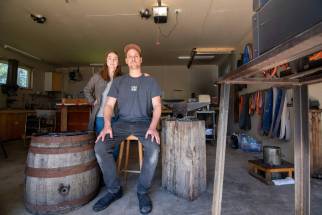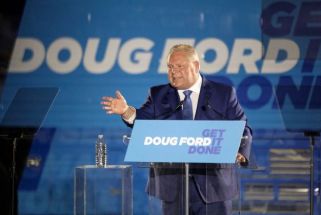In Ontario, the voters went ‘bleh’
Read this article for free:
or
Already have an account? Log in here »
To continue reading, please subscribe:
Monthly Digital Subscription
$0 for the first 4 weeks*
- Enjoy unlimited reading on winnipegfreepress.com
- Read the E-Edition, our digital replica newspaper
- Access News Break, our award-winning app
- Play interactive puzzles
*No charge for 4 weeks then price increases to the regular rate of $19.00 plus GST every four weeks. Offer available to new and qualified returning subscribers only. Cancel any time.
Monthly Digital Subscription
$4.75/week*
- Enjoy unlimited reading on winnipegfreepress.com
- Read the E-Edition, our digital replica newspaper
- Access News Break, our award-winning app
- Play interactive puzzles
*Billed as $19 plus GST every four weeks. Cancel any time.
To continue reading, please subscribe:
Add Free Press access to your Brandon Sun subscription for only an additional
$1 for the first 4 weeks*
*Your next subscription payment will increase by $1.00 and you will be charged $16.99 plus GST for four weeks. After four weeks, your payment will increase to $23.99 plus GST every four weeks.
Read unlimited articles for free today:
or
Already have an account? Log in here »
Hey there, time traveller!
This article was published 03/06/2022 (1284 days ago), so information in it may no longer be current.
The thundering majority win for Ontario premier-elect Doug Ford in Thursday’s general election offers lessons about the critical need for opposition parties to provide voters with a viable alternative.
The results of this vote speak loudly about the critical need for opposition parties to provide voters with a viable alternative. Neither the Ontario New Democrats nor the Ontario Liberals provided that alternative, and they were severely rebuked by voters for their shortcomings.
Even with Mr. Ford’s tendency to draw criticism and provoke conflict, the campaign lacked urgent or compelling issues, which convinced voters to maintain the status quo. Other external factors also played a role in the outcome.
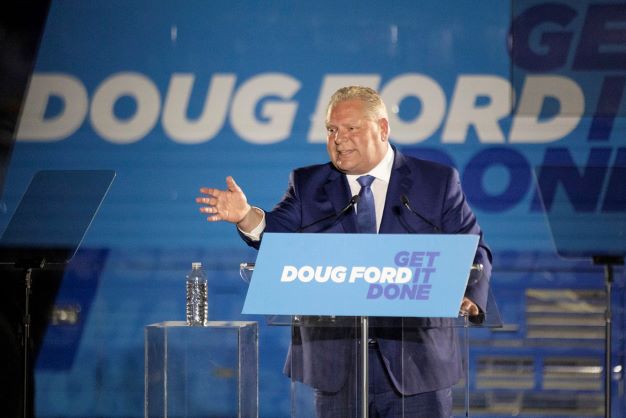
Pollsters throughout the campaign suggested the electorate was essentially disengaged from two years of pandemic worry. They also found that, when all was said and done, none of the three party leaders was seen as compelling. “It has been the battle of the bleh,” Angus Reid pollster Shachi Kurl told the Globe and Mail. “It has been an uninspiring, disengaged campaign from the perspective of the Ontario electorate. They looked at the choices they had, and they went ‘bleh.’”
As a result, this election provides little hope or insight for conservative parties in other provinces, or at the federal level. Although the popularity of Mr. Ford and his Tory party did seesaw up and down during his four years in government, opinion polls show he generally remained atop or neck-and-neck with the principal opposition parties in terms of support. When he called the election at the very beginning of May, he held a solid seven-to-10-point lead in most polls.
That is a much different scenario than the one faced by the next leader of the Conservative Party of Canada, whoever he or she may be. And going into this election, Mr. Ford and his party had not cratered in popularity, as is the case for Manitoba Premier Heather Stefanson and her Progressive Conservative government. Had Mr. Ford faced the prospect of climbing up out of the political abyss, as Ms. Stefanson surely does now, the result in Ontario may have been different.
In fact, a main factor here is really about the efficiency of the Ontario Tory vote.
Resisting the temptation to lurch to the far right to capture the vote of extremists, Mr. Ford was able to win the same percentage of the overall popularity vote (40 per cent) as he did in 2018, but increased his seat total by 16. Ms. Howarth saw her support decline by 10 points, and her seat total fell by seven. Unable to find traction with voters after four tumultuous years when the NDP seemed to have a fighting chance of forming government, she resigned her seat.
For the Liberals and Mr. Del Duca, this election was an unmitigated disaster.
.jpg?w=1000)
Some pre-election polls had the Liberals running second to the Tories, seemingly poised to — at the very least — regain official party status in the Ontario Legislature and perhaps even serve as the official opposition. In the end, the Liberals only won eight seats (one more than 2018) and Mr. Del Duca was unable to win his own seat. He, as well, resigned on election night.
The lesson of this election was that a well-funded, big-tent party is going to be very difficult to knock off in a province that has not been invaded by divisive, alt-right political forces.
Unfortunately for Tory leaders in Manitoba, and on the federal stage, it’s a lesson that they will not be able to apply when they next go to the polls.


